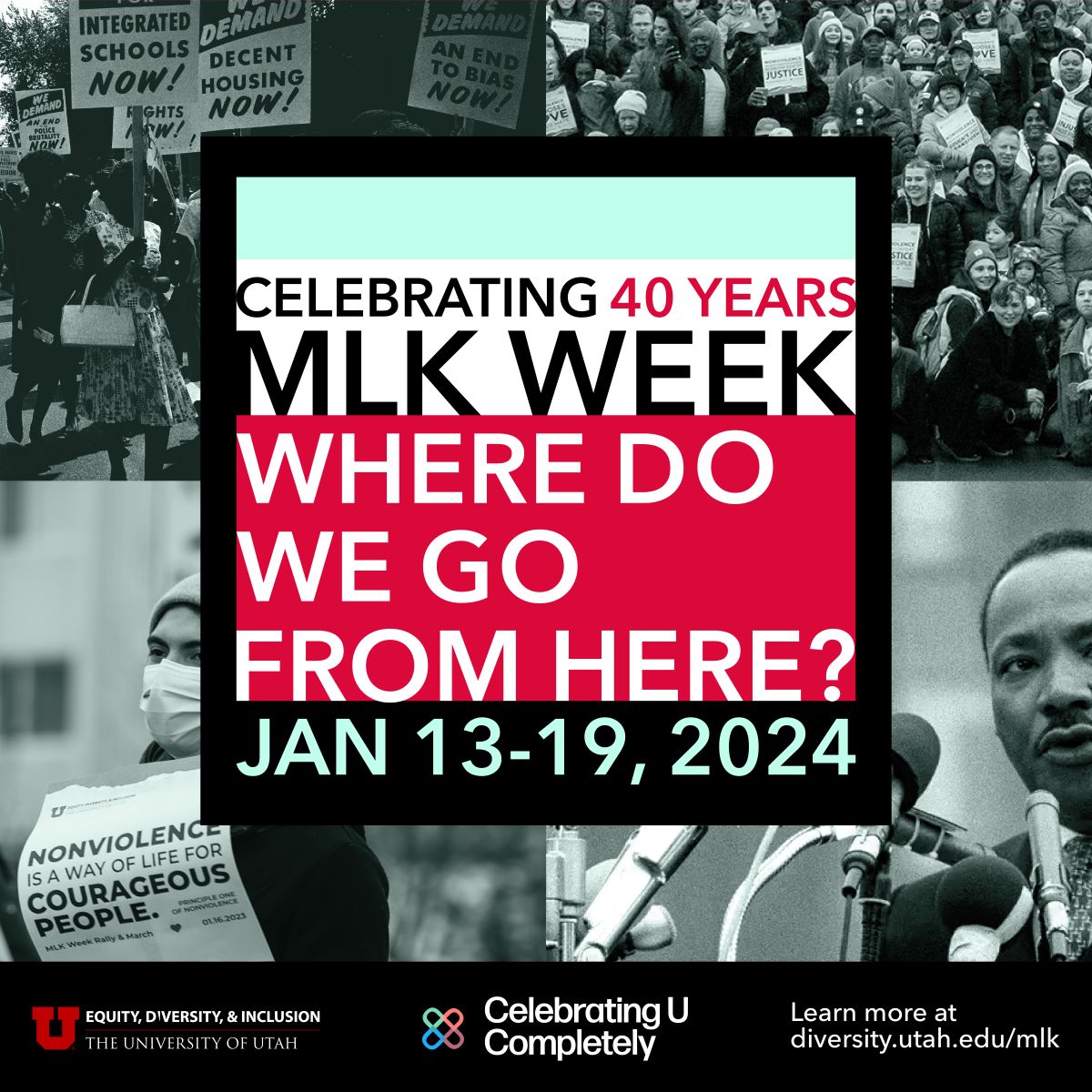Dr. King dedicated his life to improving the educational access and opportunity given to every person, and at the University of Utah we continue to strive toward those values. Martin Luther King, Jr. Week (MLK Week) has become a platform for engaging students, faculty, trainees, staff, and community members in critical conversations around race and contemporary civil rights issues in America. All are welcome to get involved and participate!
Equity, Diversity, & Inclusion
- About EDI
- Events
- Programs & Initiatives
- Black Advisory Council
- EDI Strategy Council
- EDI Strategic Plan
- Equity, Diversity, and Inclusion Onboarding Toolkit
- HBCU Partnerships
- Indigenous Land Acknowledgment Posters
- Interfaith and Belonging
- IntersectX12
- Latinx Advisory Council
- The Joy of Belonging
- MLK Youth Leadership Awards
- New Leadership Academy
- Racist & Bias Incident Response Team
- Seal of Excelencia
- Self-Study Guide & Toolkit
- Give to EDI
- EDI Request Form
- Blog & Newsletter
- The Joy of Belonging

 Upcoming
Upcoming 40th Anniversary
40th Anniversary Virtual
Virtual Sponsors
Sponsors


